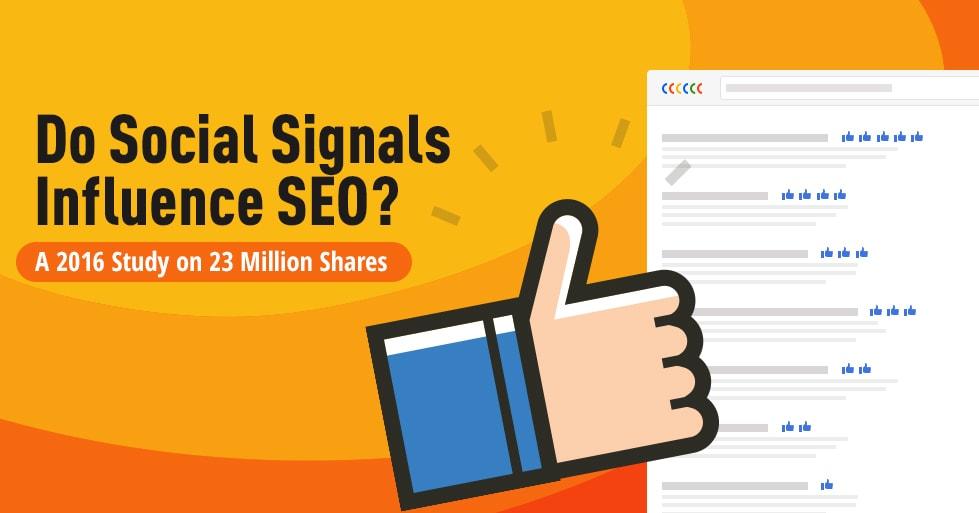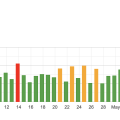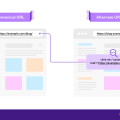You’re scrolling through your social media feed, casually liking and sharing posts, but did you know these actions might be influencing search engine rankings? “How Do Social Media Signals Affect SEO?” delves into the intriguing connection between your social media activity and search engine optimization. This piece explores how likes, shares, and comments can indirectly impact a website’s visibility on search engines, driving more traffic and potentially boosting its ranking. Whether you’re a digital marketer or a casual user, understanding this relationship can give you insights into how your online interactions shape the digital landscape. Ever wondered how those likes, shares, and comments on your latest social media post impact your website’s rank on Google? You’re not alone. The relationship between social media signals and SEO is one of the most intriguing and often misunderstood facets of digital marketing.
Let’s dive deep into how your social media activity can influence your SEO, and what you can do to make the most out of both worlds!
What Are Social Media Signals?
First things first, let’s clarify what we mean by social media signals. Essentially, social media signals are the various interactions your content gets on social platforms. These can include likes, shares, comments, retweets, and mentions. Think of these signals as digital endorsements or votes of confidence for your content.
Types of Social Media Signals
To give you a clearer picture, here are some common social media signals:
| Social Media Signal | Description |
|---|---|
| Likes | Number of likes on posts, photos, or videos |
| Shares/Retweets | Number of times your content is shared or retweeted |
| Comments | Number of comments or discussions your posts generate |
| Mentions | Instances where your brand is tagged or mentioned |
| Followers | Total number of followers or subscribers |
Understanding the different types of social media signals can help you gauge how well your content is performing and what might need improvement.
Do Social Media Signals Directly Affect SEO?
Okay, here’s where things get interesting—and a bit complex. The direct impact of social media signals on SEO is a topic that’s been debated among SEO professionals for years.
Google’s Stance on Social Media Signals
Google has publicly stated that social media signals do not directly impact search engine rankings. However, this doesn’t mean that social media has no role in SEO. Rather, their relationship is more indirect.
How Social Media Can Indirectly Affect SEO
Although social media signals may not be direct ranking factors, they can indirectly influence your SEO in various ways:
- Increased Visibility: When your content gets shared, more people see it. This can lead to an increase in backlinks, which are a direct ranking factor.
- Enhanced Brand Awareness: A strong social media presence can improve your brand’s visibility and credibility.
- Improved Content Engagement: Engaging content tends to attract more organic traffic, which can positively affect your website’s SEO.
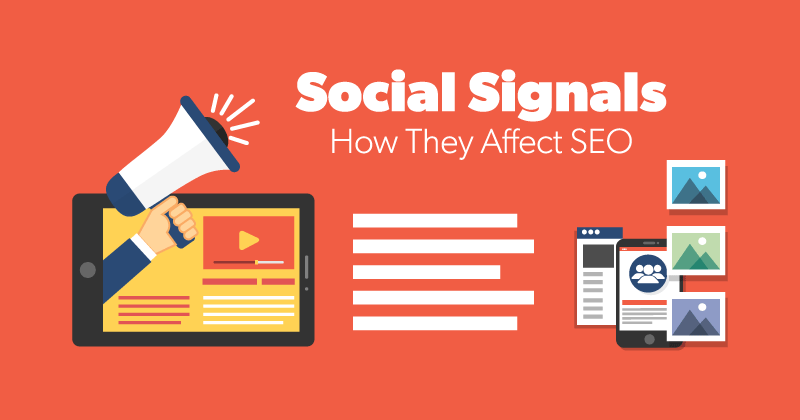
The Indirect Benefits of Social Media on SEO
Now that we’ve established the indirect relationship between social media and SEO, let’s explore some specific ways in which social media activity can benefit your SEO efforts.
Higher Quality Backlinks
One of the most significant indirect benefits of social media activity is the potential for attracting quality backlinks. When your content resonates with people and gets shared, it increases the likelihood that other website owners will link back to your content.
Increased Website Traffic
Social media platforms are excellent channels for driving traffic to your website. The more traffic you have, the better your site performs in search engine results. Plus, search engines like Google use user engagement metrics as a ranking factor, so the more engaged your traffic, the better.
Content Indexation
Social media can help your content get indexed faster. When you share a new blog post or landing page on social media, it sends a signal to search engines that there’s new content to be found. This can speed up the indexation process, helping your content appear in search results more quickly.
Enhanced User Experience
When users find your content engaging and valuable on social media, it reflects the quality of your overall online presence. Search engines like Google prioritize websites that provide a good user experience, which can indirectly boost your SEO.
Best Practices for Using Social Media to Boost SEO
Great, so now you know that social media signals can indirectly affect your SEO. But how can you optimize your social media strategy to make the most of these benefits? Here are some best practices:
Create High-Quality Content
Quality content is the cornerstone of both social media and SEO. Focus on creating valuable, engaging, and shareable content. This will not only improve your social media engagement rates but also increase the chances of attracting quality backlinks.
Be Active On Multiple Platforms
Diversify your social media presence. It’s not just about being on Facebook or Twitter. Platforms like LinkedIn, Instagram, Pinterest, and even TikTok can be beneficial depending on your audience.
| Platform | Best For |
|---|---|
| Broad audience, community building | |
| Real-time engagement, news sharing | |
| B2B marketing, professional networking | |
| Visual content, younger audience | |
| Niche markets, visual boards | |
| TikTok | Short-form video content, young audiences |
Engage With Your Audience
Don’t just post and forget. Engage with your audience by replying to comments, sharing user-generated content, and encouraging discussions. The more interaction your posts receive, the more visible and influential your social media presence becomes.
Use Hashtags Strategically
Hashtags can extend the reach of your posts beyond your immediate followers. Use relevant hashtags to make your content discoverable by a broader audience.
Monitor Analytics and Adjust Strategies
Keep an eye on your social media analytics to understand what’s working and what isn’t. Use this data to refine your strategies and improve your social media and SEO efforts.
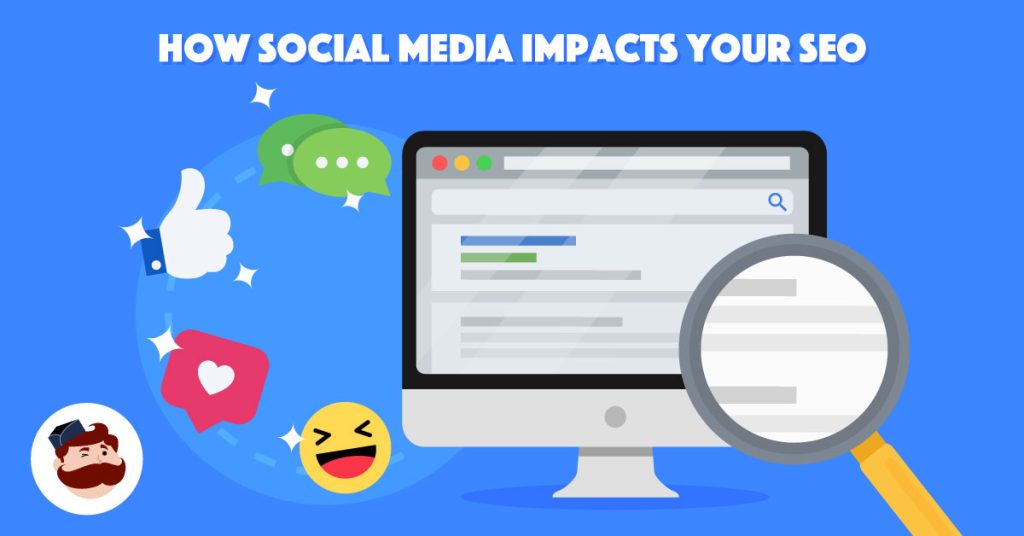
Case Studies: Real-World Examples
Sometimes, seeing real-world examples can help clarify abstract concepts. Let’s look at a couple of case studies to understand how social media signals can affect SEO.
Case Study 1: Buffer
Buffer is a social media management tool known for its robust online presence. The company ran an experiment where they focused on improving their social media strategy. Within a few months, they saw a significant increase in their website traffic by about 150%. More visitors led to more backlinks, improved engagement metrics, and higher search engine rankings.
Case Study 2: Moz
Moz, a well-known SEO software provider, leveraged its social media channels to amplify its content. By sharing insightful articles and engaging with their audience, they managed to increase their organic search traffic by more than 20%. The increased brand awareness and trust built through social media also contributed to higher click-through rates and lower bounce rates on their website.
Common Myths About Social Media and SEO
Despite the clear benefits, there are numerous myths and misconceptions about the relationship between social media and SEO. Let’s debunk a few of these.
Myth 1: Social Signals Are a Direct Ranking Factor
As we mentioned earlier, Google has stated that social media signals are not direct ranking factors. While social signals contribute to your site’s performance, believing they directly affect rankings can lead you to focus on the wrong metrics.
Myth 2: More Followers = Better SEO
Having a large following is great, but it doesn’t directly impact your search engine rankings. Quality engagement and genuine interactions are far more valuable than just the number of followers.
Myth 3: Only Certain Platforms Matter
Some think that only major platforms like Facebook and Twitter affect SEO. In reality, any social media platform where your audience is active can contribute to your SEO efforts.

Tools and Resources to Track Social Media and SEO Performance
Measuring the effectiveness of your social media strategy on your SEO efforts can be a challenge. Fortunately, there are several tools available to help you track and analyze your performance.
Google Analytics
Google Analytics is invaluable for tracking the traffic coming from social media. It allows you to see which social platforms are driving the most traffic, how users from these platforms behave on your site, and much more.
Google Search Console
Google Search Console can help you track how well your website is performing in search results. Look for trends that correlate with your social media activities to better understand the relationship.
Social Media Analytics Tools
Platforms like Hootsuite, Buffer, and Sprout Social provide comprehensive analytics for your social media activities. Use these tools to measure engagement, reach, and the overall effectiveness of your social media strategy.
SEO Tools
Tools like Moz, Ahrefs, and SEMrush can give you insights into your website’s SEO performance. Look for metrics like backlinks, organic traffic, and keyword rankings to gauge the impact of your social media activities.
Conclusion
So, how do social media signals affect SEO? While they may not be direct ranking factors, their indirect influence is undeniable. From improving your website’s visibility and driving traffic to attracting quality backlinks and enhancing user experience, social media can significantly contribute to your SEO efforts.
By understanding the intricate relationship between social media and SEO, and implementing best practices, you can harness the full potential of both to grow your online presence. Happy sharing and ranking!
